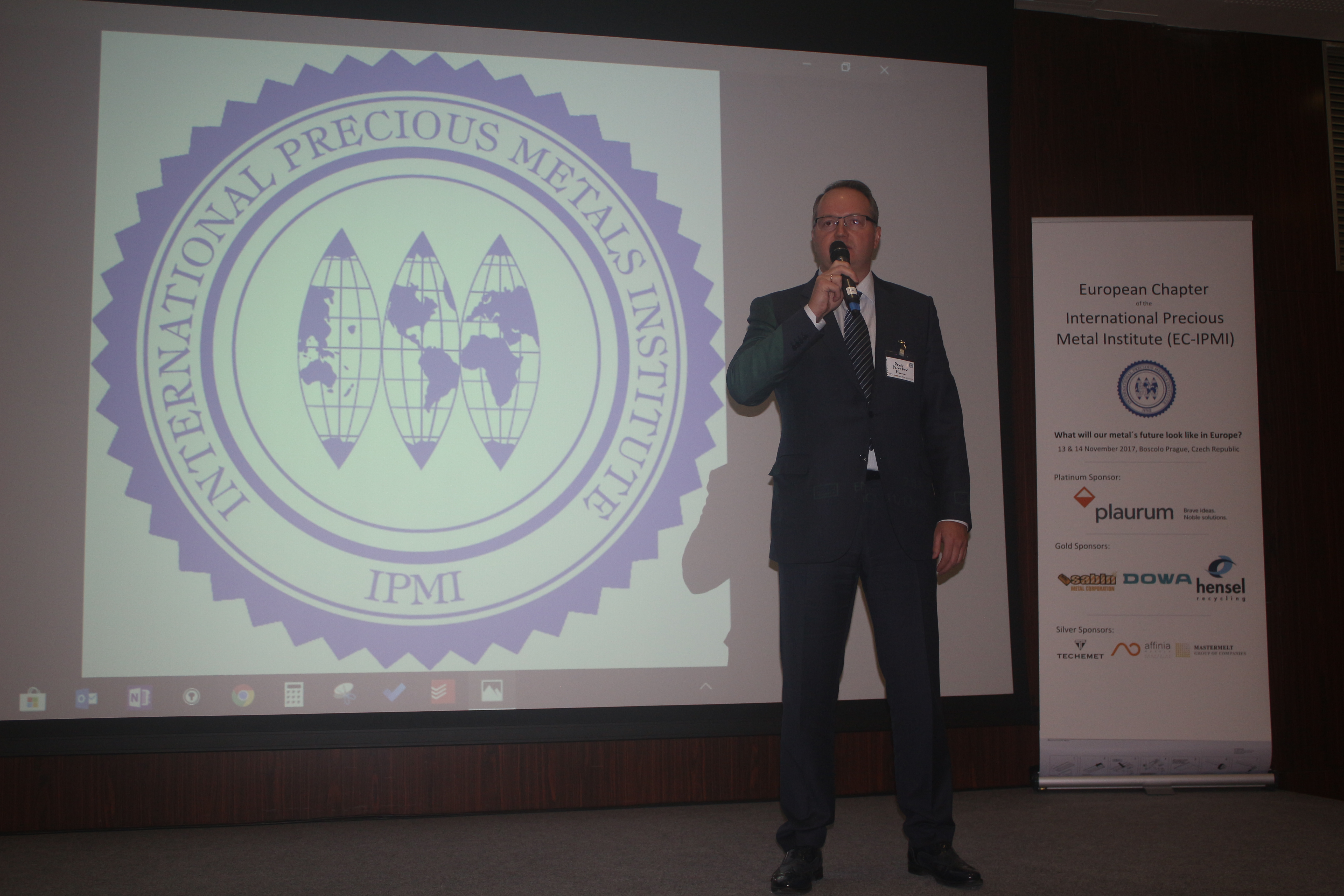Prague Seminar 2017
General Information
This Seminar took place on the 13 & 14 November 2017, at the Boscolo Hotel in Prague. It was well attended with 137 perticipants - as a matter of fact, the seminar was sold-out more than 1 week before the event!
Presentations
Mikhail Khaimov (Mairec) opened the conference with a very attractive title : "General Precious Metals Recycling – the 2nd Oldest Profession in the World. Do we really need innovation?"
Putting customers in the center of the process allows to fullfill their needs, by asking the proper questions - not only "how" and "what", but also "why". With this approach in mind Mairec for example reduced the assaying time from 3 weeks to 3-4 days, which typically answers the customer request for faster feedback and liquidity.
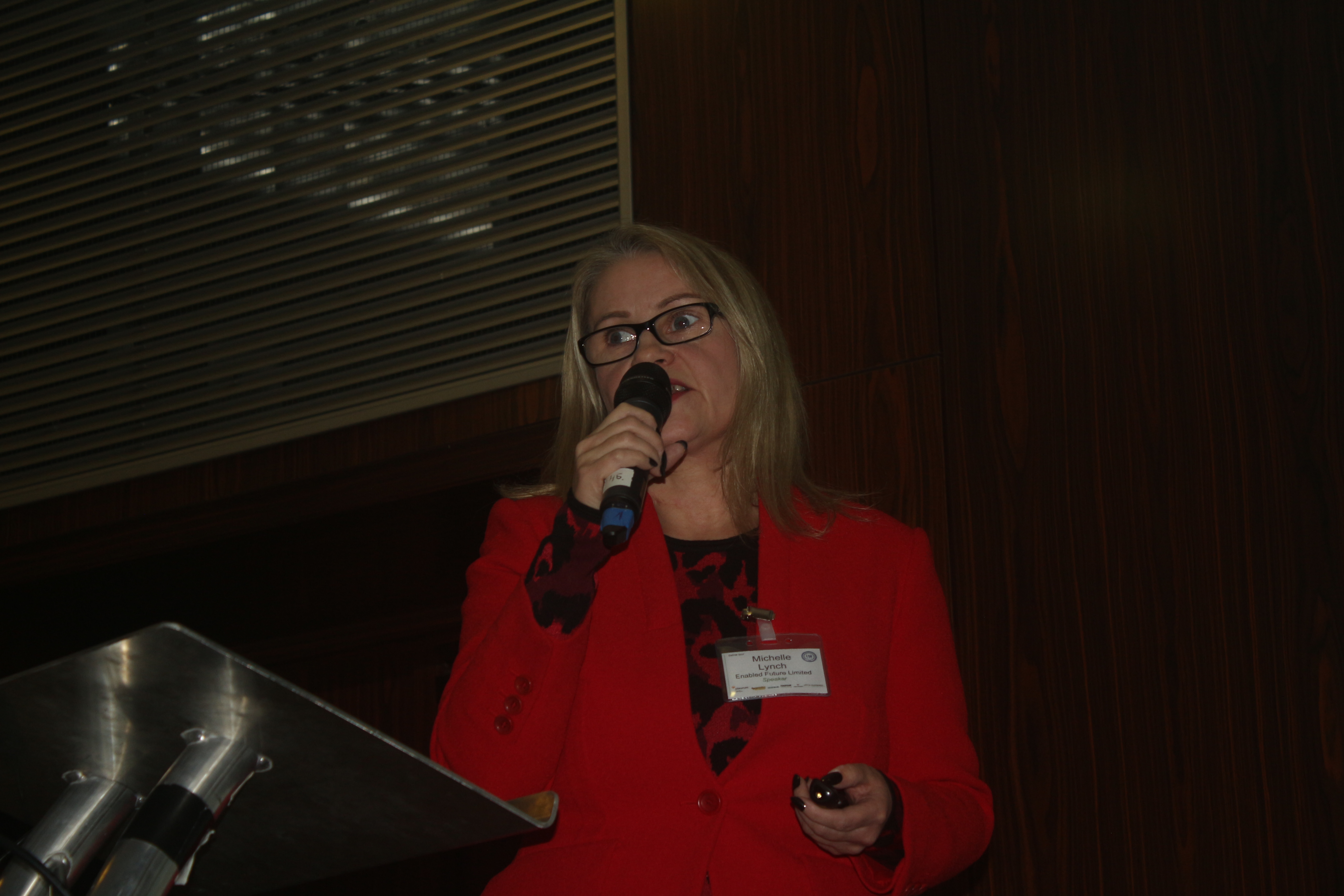
Currently, 60% of PGM consumption is for the automotive industry, Pd being the most exposed to electrification. Over the last 7 years, almost all PGM growth came from that industry, and unfortunately the new usage of PGMs are no "gamechangers".
A shift of feedstock from fossil fuels to CO2 would however significantly reshape the PGM applications. Capturing CO2 is already generating $10 bn in revenue.

EFT in Palladium were only established 10 years ago, and all investors are hence currently in position to take profit.
Physical market is so tight that there is currently a net export from Switzerland, while Greater China official gross imports have risen by 9% in the year to date (and consumption having risen much more than that).
Since March 2017, backwardation on the palladium market is observed, with forward price lower than the spot price; this lead to a significant increase in leasing rates. Palladium sponge is at a premium to ingot, a signal of strong industrial demand
The conclusion is that the palladium price is overstreched, although fundamentals are strong.

The role of market regulation was approached - CME for example had their inventories published since several years - and the chain of integrity presented, with approved refiners, approved assayers and approved depositories.
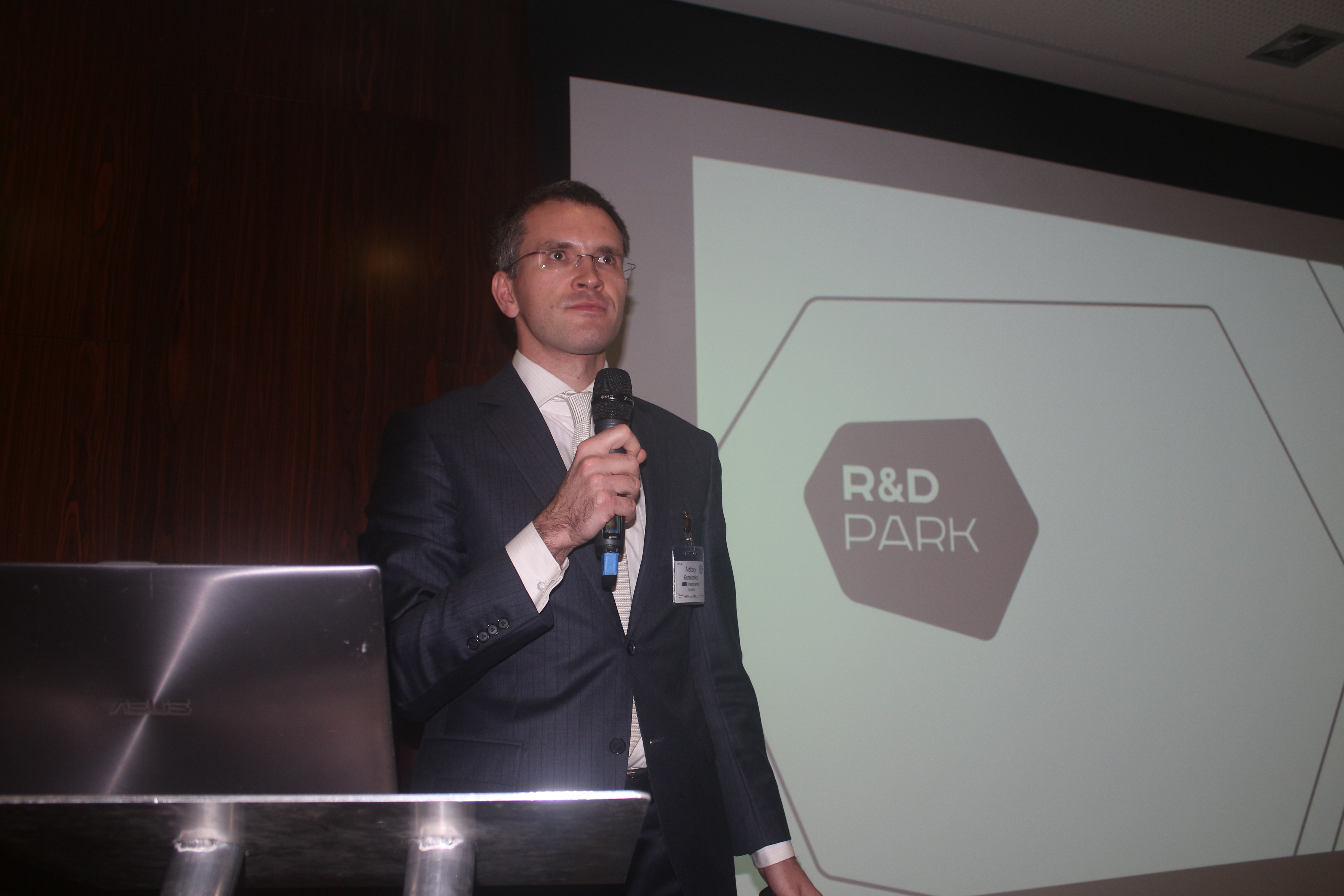
Eventually, the service will become more important than the product.
Federico Padrono Martini (IKOI) made an update on ALS, a pre-refining process removing silver from Au/Ag/Cu feedstocks using vacuum distillation technology. This process is not using any acid nor chemical product, making it by essence a "green" approach to pre-refining.
Typically used for doré material, the largest version of ALS allows to treat as much as 100 kg in one single batch. Latest development, a direct pouring into molds for anodes is possible, singificantly lowering the overall total process time.
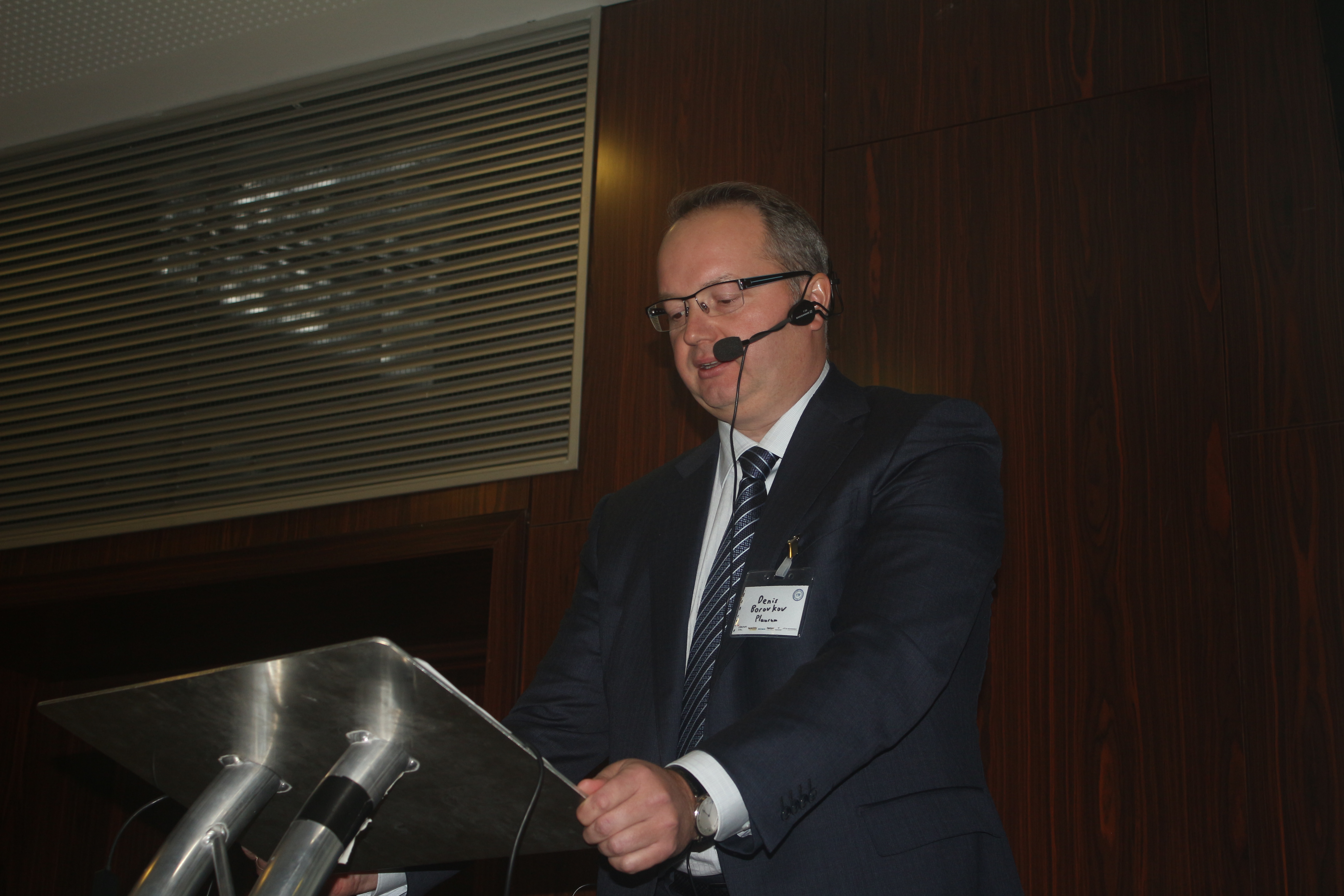
Klaus Sparn (Umicore) detailed the increasing complexity in autocat recycling. Since Euro 6 implementation, and the addition of NOx aftertreatment and real driving emissions, multiple types of catalysts have been put in the market. They are made of two different substrates, either of SiC or cordierite, and some DPF (Diesel Particulate Filters) are even PGM-free.
The market for SiC-DPF recycling is expected to grow sharply in the next 3-4 years in Europe, eventually contaminating the recycling stream as PGM-free material.
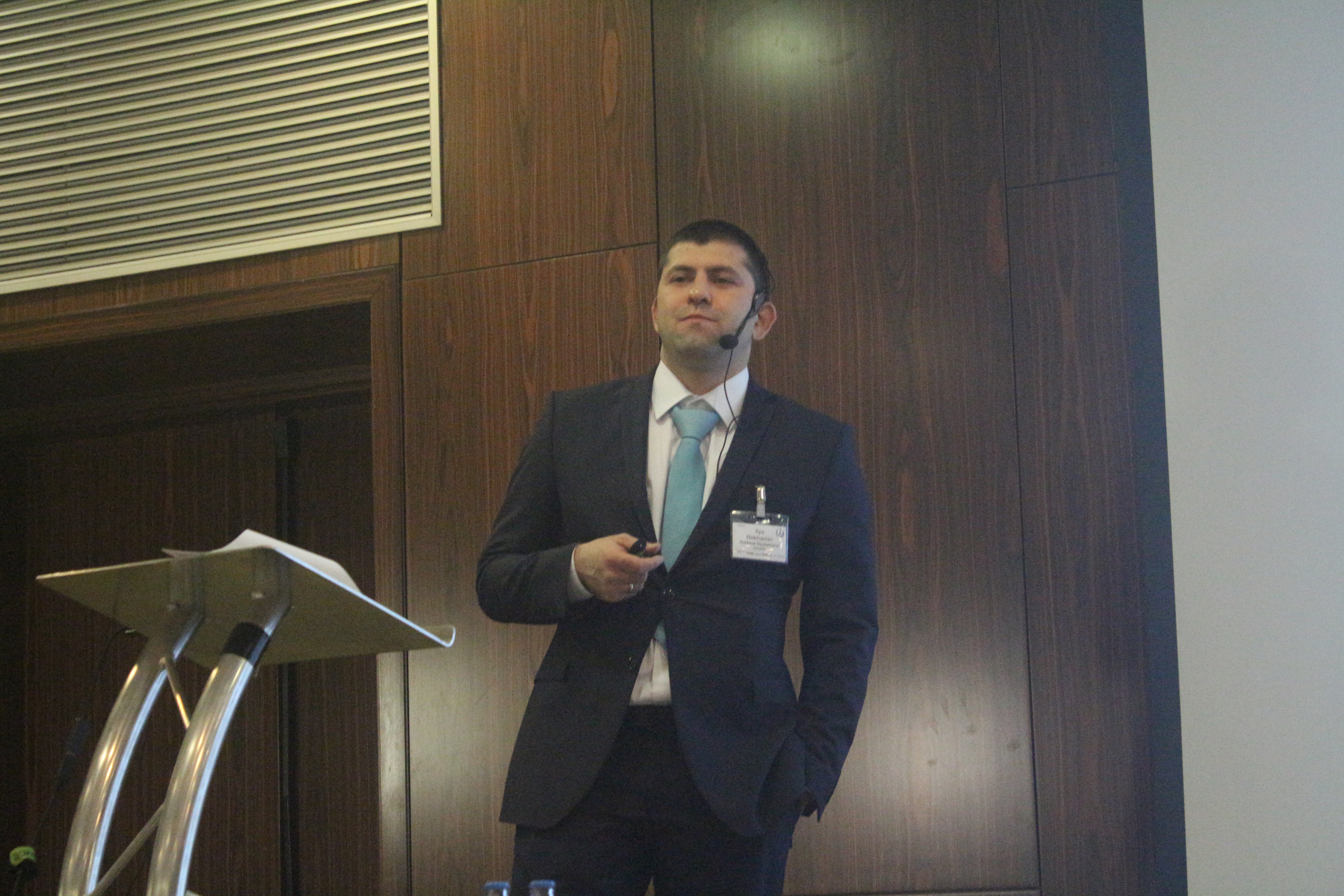
Simona Marta (BASF) followed up on the silicon carbide, and specifically on its analysis.
Due to the potential issues with mixed SiC / cordierite lots, a semi-quantitative method for determining the amount of SiC in recycled autocat lots was developped.
A combinaison of XRF and C gas analysis was put in place, allowing a rapid and cost-effective determination of SiC content.
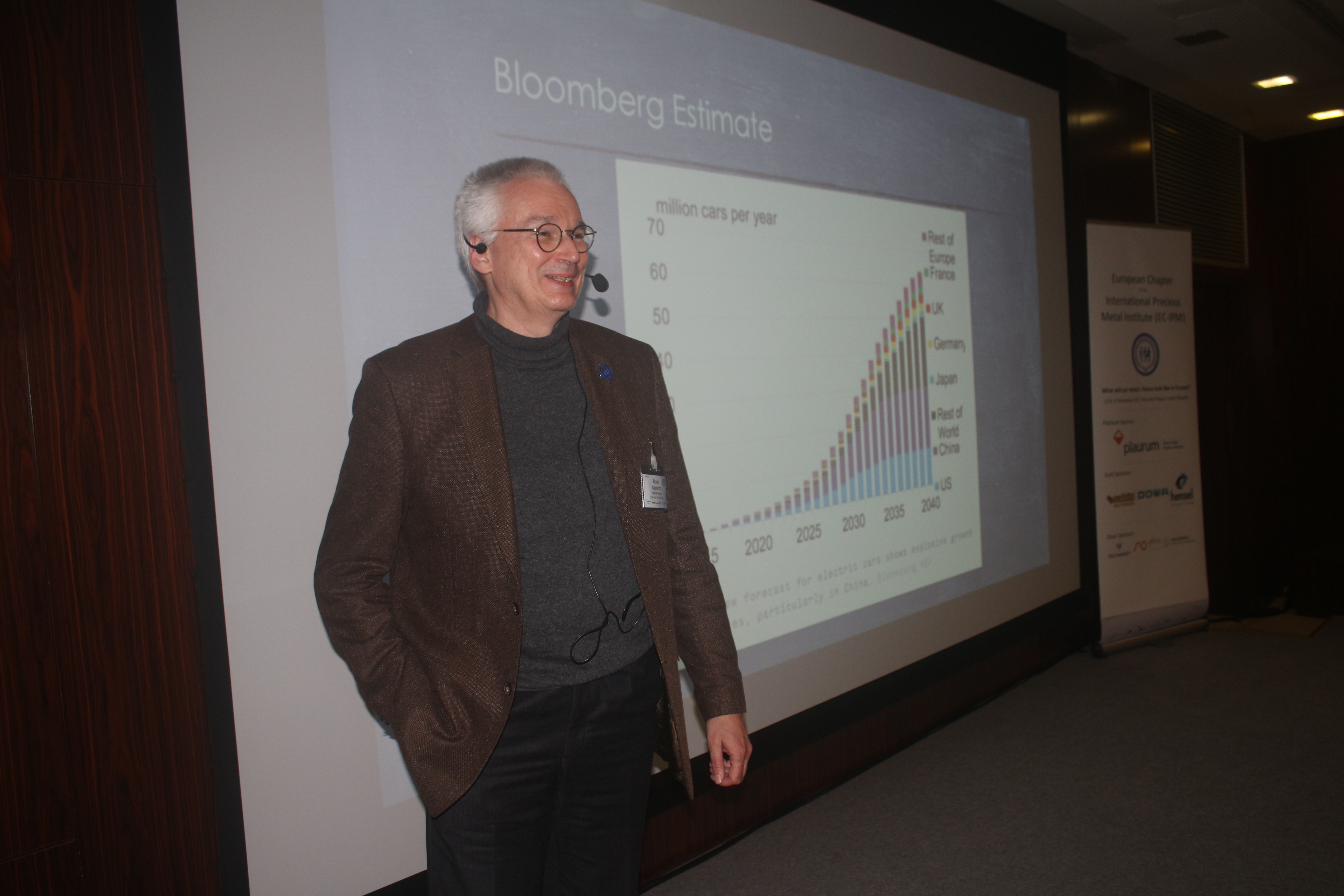
Electric cars represents really a disruptive technology. Tesla car deliveries could follow the Model T production in the early 20th century, with a huge increase of number within an extremely short period.
Lithium, cobalt and rare earths would be the winners of such change, while PGMs are the ony loosers with a -53% consumption.
How could we have a seminar without talking about compliance? Rene Wiskemann (Agosi) described what mined gold should be: coming from registered mines from conflict-free area, without child or forced labor, offering acceptable working conditions and a responsible environmental framework.
Currently, there is a jungle of labels (comprising audited industrial and other audited standards, as well as many company standards): this should not let us lowering our standards.
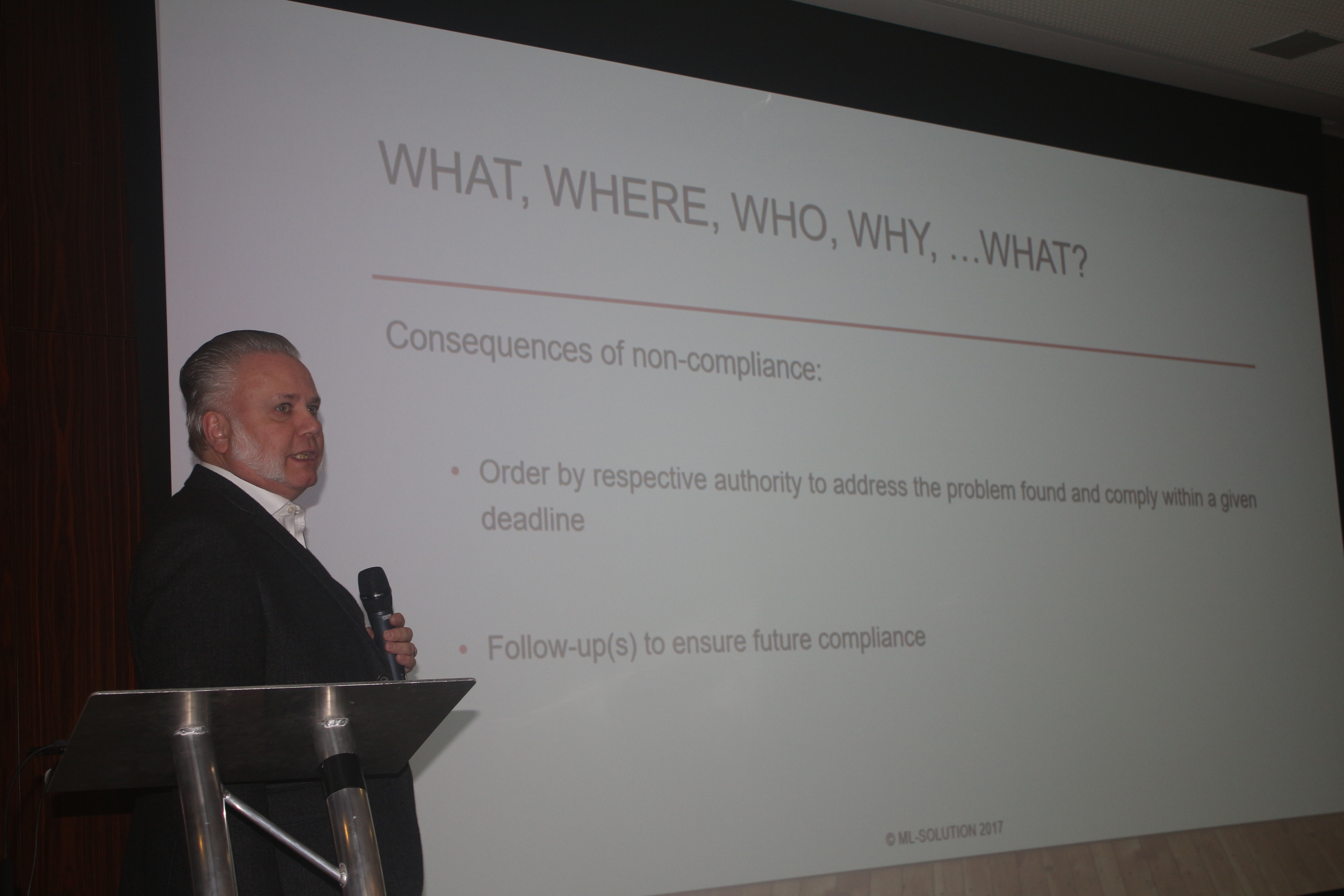
While the EU will provide a list of indications of countries concerned, all direct importers will have to complete Due Diligence with their respective suppliers.
All presentations can be downloaded from this link.
Pictures can be seen here.

